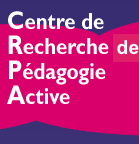
L'école est membre de l'Association Nationale pour le Développement de l'Education Nouvelle (ANEN) En savoir plus
The Ecole Nouvelle d’Antony was founded in 1961, thus it is over 60 years old!
It is located in the southern suburbs of Paris, on the RER B line, 3 minutes walk from the Parc de Sceaux station.
Address : 4-6 Avenue d’ALEMBERT, 92160 ANTONY
The Ecole Nouvelle d’Antony is a private, pre-school and primary school with no religious affiliation, that since 1967. It has an association contract with the French state. The French National Education Ministry thus funds most of the school’s teacher salaries.
The association contract with the French state obliges the School to follow state educational directives and the official state school curriculum.
The School is managed by an association : the Center of Active Pedagogical Research (Centre de Recherche de Pédagogie Active in French or CRPA) which includes parents of both current and former students. The CRPA employs additional persons to ensure that the students are able to undertake the activities it judges as important for the child development – music, library time, and English classes from nursery onwards (Petite Section in Maternelle).
For a long time the School has a 5 day a week schedule, as is now required by the current scholastic reform, with the following hours:
Monday, Tuesday, Thursday, Friday: 9 am to 4:15 pm, (time for lunch included)
Wednesday: 9 am – 12 am.
There is a canteen and the majority of children eat lunch at school four days a week. The children may also bring their own lunch to school if they wish.
The CRPA also manages a Leisure Centre that is associated with the School and manned with qualified personnel, which allows parents to drop off their children in the morning prior to school opening (from 8 am) and to recuperate them after school until 6:20 pm, including Wednesdays. This is a paid service.
The School fees are calculated on the basis of each family’s income at the time of enrolment or re-enrolment, and the number of children enrolled.
The fees are available on this page:
“A school where a child does not do what he wants, but where he wants to do what he does”, Roger Cousinet, Educator
The pedagogical team of the School requires a true commitment by the family to the School, seeking a deep acceptance by the parents of its pedagogical practices.
To establish an atmosphere of confidence between the children and the adults.
To motivate the children to become independent.
To accept that the children are independent and stakeholders in:
By all the means which contribute to the development of the pleasure of learning, discovery, using self realization or group realization, including:
Although the School offers English classes twice a week beginning from nursery, it is not a bilingual school. That said, it places importance on the acquisition of foreign languages in the development of the children.
There is also the possibility of registering bilingual English speaking children at the Roaming School Houses’ Friday afternoon school classes (this is a private institution unrelated to the School, for further information see: Roaming School House.